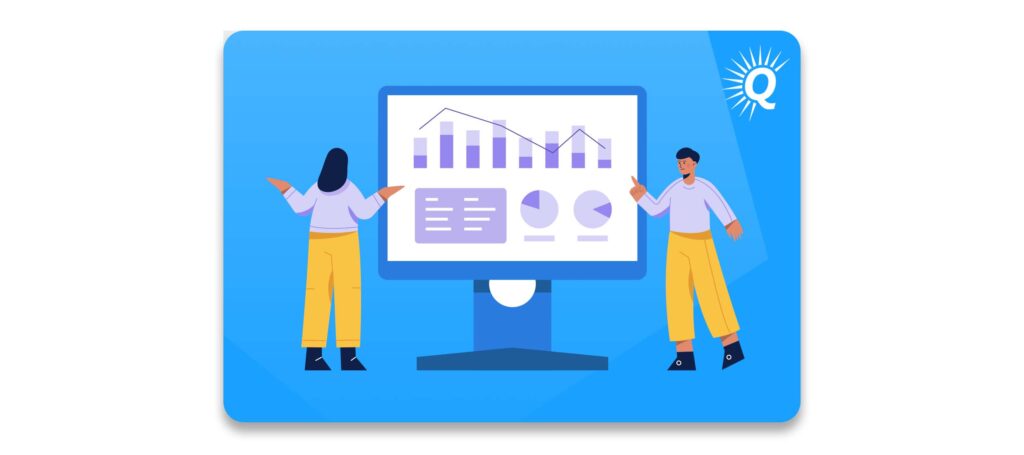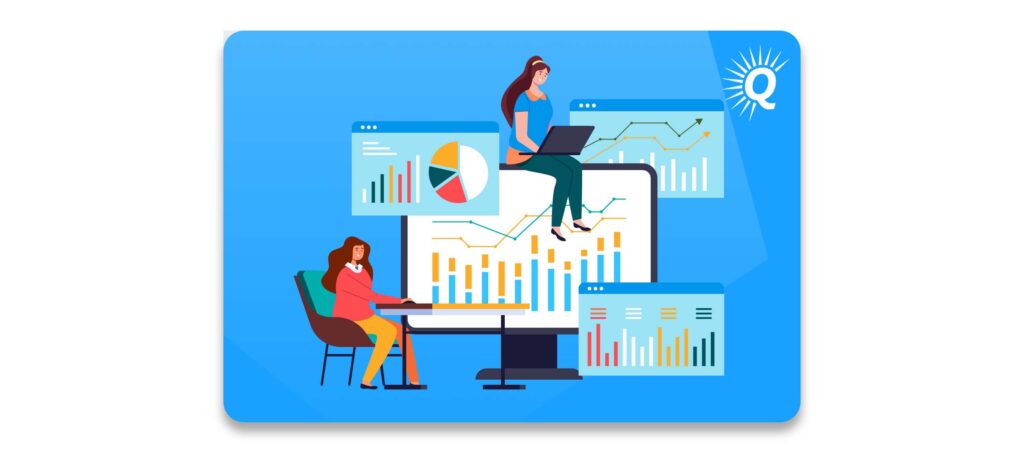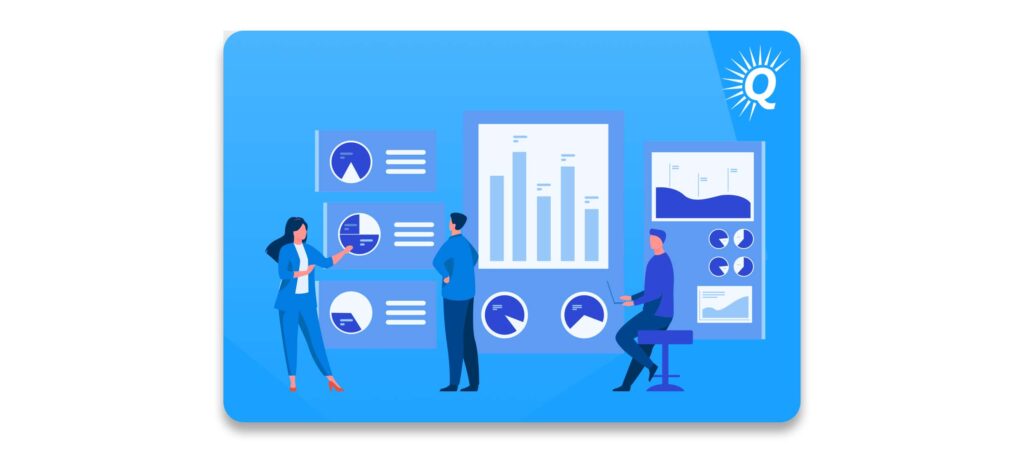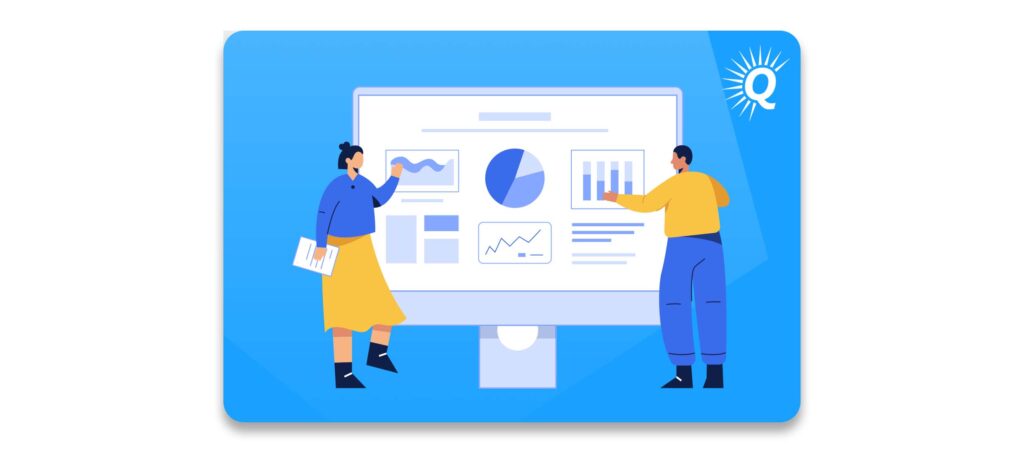Topics:
Never Miss a Beat - Get Updates Direct to Your Inbox
FILTER:


How to Find the Right Online Business Investment for You
By Quiet Light
For the right entrepreneur, a smart online business investment brings with it a number of life-changing benefits. However, in order to succeed when buying a business, it’s essential to know what to look for and how to evaluate deals. Failing to inform yourself of the process before making an investment decision can spell disaster for your time, money, and energy.
In this article, we discuss:
- Why online businesses can be extraordinary investment opportunities
- What to look for in an online business investment
- Key skills required to invest in online businesses
Related Articles:
The Pros and Cons of Buying an Online Business
Buying an Online Business: Entrepreneurship Through Acquisition


Why Online Businesses Can Be Extraordinary Investment Opportunities
Buying an online business represents a unique opportunity in the world of investing. While buying an online company may be a less passive investment than other options, the upside potential is also much greater.
Investing in an online business has several advantages. These include:
- Scalability and ROI (return on investment) potential
- Passive income opportunities
- Location independence and a flexible work schedule
Scalability and ROI potential
Compared to other investment opportunities, buying an online business can provide a return on investment that stands head and shoulders above the rest. For those willing to roll up their sleeves and do the work, this makes for an exciting investment opportunity.
The ROI potential of online businesses comes down to scalability. Scalability is the ability of a business to grow and scale dramatically over time. By expanding into new markets, launching additional products, or implementing or optimizing a marketing plan, you can dramatically increase the revenue and income of a business after purchase.
This increased business income can bring immediate benefits to your personal finances. In addition, as the business income grows, so too will its value. By buying and growing a business, you can resell it for a much higher profit after several years’ time.
Of course, all business ventures entail some risk. While the ROI upside of buying a business may be significant, it may also be riskier than other investment opportunities. Throughout the process, be sure to maintain a clear idea of the risks involved. In addition, make sure you are clear about what will be required of your time and energy in order to give yourself the best chance of success.
“While buying an online company may be a less passive investment than other options, the upside potential is also much greater. ”
Passive income opportunities
Investing in an online business can also unlock exciting lifestyle changes. The most apparent change is the ability to earn a passive (or nearly passive) income. This frees up your time to work on other ventures, travel, or spend more time doing the things you choose with the people you love.
Once built, many online businesses require little work on the part of the owner. For example, if you buy the right ecommerce store, it is possible to build out teams in order to automate most of the business processes.
By hiring a marketing team, accountant, operations manager, or other vital roles, you can minimize your involvement in day-to-day operations. Many online business owners only work a few hours per week in order to address big-picture topics or ensure that everything is running smoothly.


Location independence and a flexible work schedule
Many entrepreneurs are also attracted to the flexibility and freedom that comes with buying and running an online business. Many online businesses can be run from anywhere as long as you have a laptop and access to the internet.
For example, if you run an Amazon FBA company, it is possible to manage all operations remotely. Running your social media accounts, managing your operations team, sourcing and ordering new products, and more can all be done from your computer.
In addition, most tasks can be done at a time of your choosing. This allows you to pick your schedule to fit your needs, whether it’s leaving yourself more time to be present for your family or arranging your day so that you can take a mid-morning surf break.
Location independence and work-schedule flexibility unlock a high degree of freedom that often can’t be found in a traditional 9-to-5 job. Whether you use this freedom to live and work remotely while traveling the world or simply have more time to spend with your family (or both), the choice is yours.
“Many online businesses can be run from anywhere as long as you have a laptop and access to the internet.”
What to Look For to Find a Good Online Business to Invest In
Many entrepreneurs wonder, “How do you make sure that the business is a good investment?” Finding the right online business to invest in is crucial in order to be successful. Invest in the wrong business, and you may lose your money entirely. Given the importance of choosing your investment wisely, it is important to know what to look for when selecting a company to purchase.
There are many different aspects of a business to evaluate when making a purchasing decision. However, these can be grouped together into several larger categories. These include:
- Evaluating past and current growth trends
- Looking for future growth opportunities
- Paying attention to the industry and overall market growth trends
- Evaluating potential business risks
- Examining the business’s documentation
- Considering how transferable the business is


Evaluate past and current growth trends
Given that you are looking to realize a healthy return on your investment, it is crucial to buy a business that you can expect to grow into the future. One of the easiest ways to predict future growth is to look at the past and current growth trends of a business.
For each business you are considering purchasing, be sure to take a close look at how it has grown throughout its existence. If it has exhibited strong and consistent growth over its lifetime, it portends well for future growth opportunities. If it does not have strong past growth, it may not represent a worthwhile investment.
“One of the easiest ways to predict future growth is to look at the past and current growth trends of a business.”
Look for future growth opportunities
Ultimately, you are looking to buy a business that has a high likelihood of future growth. While past and current growth trends can signal potential future growth, it is also important to look at any specific future growth opportunities the business has.
Is there room to implement new marketing strategies to access untapped growth? For example, if the current owner has not implemented any paid advertising, could adding paid channels boost revenue and income? Or, is there room to launch new products or add new revenue streams such as an online store?
Finding a business with several areas of untapped growth is a great way to help increase your chances of scaling the business after purchase and attaining a high ROI.


Pay attention to the industry and overall market growth trends
While it is helpful to look at the growth trends of the business in question, it is also important to keep in mind that it does not operate in a vacuum. The growth trends of the industry that the business inhabits also play a role in the future prospects of the company.
If the industry or niche is contracting, it doesn’t bode well for future growth. On the other hand, if the business niche is in the midst of a sharp expansion, it may be easier to achieve a higher ROI.
When considering niche growth trends, be mindful of whether the business inhabits a fad market. If it does, how does this align with your overall goals for the business? Are you hoping to achieve long-term cash flow from the business, or are you looking to make a quick dollar as the industry rises?
Industry considerations aside, it is also important to pay attention to the trends of the overall economy. If things are headed into a recession, it may be harder (although not impossible) to achieve a high ROI.
Evaluate potential business risks
All the growth potential in the world is only good if it actually comes to fruition. While all business ventures entail some level of risk, the more risk an investment incurs, the lower the expected payout is from that investment.
There is no right or wrong answer to choosing an acceptable level of risk. It all depends on your personal circumstances and goals. While some individuals may be willing to accept more risk for the chance of a higher ROI, others may wish to invest in a business that has less upside potential but more chance of a steady return. Regardless of where you fall on the continuum of risk tolerance, you must take a sober look at the risk profile of any business you are considering investing in.
There are several things to look for when considering risk. Any business whose success relies on a single point of failure incurs more risk. This could mean a business that only has one product in its lineup or a business that relies solely on a single marketing channel to drive revenue.


The age of a business also plays a role in how risky it is. In general, the longer a business has been around, the less risky it is perceived to be. An established brand is generally more reliable than a startup. This is because they have a longer track record of proving their concept and execution.
Before making a purchasing decision, it is also crucial to consider whether a business has any outstanding legal risks associated with it. Are there any pending lawsuits? Have they filed the appropriate patent protections? Are they at risk of getting sued for trademark or patent infringements?
“Regardless of where you fall on the continuum of risk tolerance, you must take a sober look at the risk profile of any business you are considering investing in.”
Examine the business’s documentation
Next, be sure to take a close look at how well the current business owner has maintained the company’s documentation.
Ensure that the business maintains professional and orderly financial records as well as third-party records verifying the claims made in their accounting records. Examining financial statements and third-party records makes it much easier to evaluate the performance of the business during the buying process.
In addition, make sure the business in question also maintains records detailing how the company operates, such as a comprehensive business plan. This could include marketing plans, operational procedures, third-party or vendor relationships, supply chain details, or new-product sourcing. These records can act as an operating manual for you once you take over ownership.


Consider how transferable the business is
Lastly, it is crucial to consider how transferable the business is. Transferability refers to the ease with which a business can be transferred from one owner to another without negatively impacting the performance of a business.
There are several factors that can impact transferability. If the business is tied to the likeness, personality, or image of the owner, it would be difficult for them to step away without seeing a decline in performance.
Another factor to consider is how involved in business operations you would need to be after buying the company. If the business owner has done a good job of automating processes and building out teams to handle day-to-day operations, your time requirement may be minimal. In this case, the business is much more easily transferred.
On the other hand, if the owner runs all aspects of the business and hasn’t documented the operational processes, it will be much more difficult to step in. Even if you do so successfully, it will require much more time and effort from you.
By considering the past, current, and future growth trends of a business and the market as a whole, evaluating risk, examining documentation, and taking transferability into account, you can ensure yourself a much higher chance of purchasing a business that fits your needs and goals.
Outsmart the startup game and check out our listings. You can request a summary on any business without any further obligation.Buy a Profitable Online Business
How to Find the Right Online Business Investment For You
Not all business investments are successful. How you run the business after acquisition matters a lot for your eventual success or demise. However, choosing the right business to purchase initially is the first crucial step to achieving a healthy return on your investment.
There are several steps to go through in order to find the right business for your needs. These include:
- Getting clear on your goals
- Assessing your skill set
- Identifying your criteria
- Finding potential deals that meet your criteria
- Negotiating with the seller
- Analyzing the deal and making an offer
- Navigating the transaction process
“By getting clear on your goals, you will have a much better idea of what kind of business you need to purchase in order to meet those goals.”
Get clear on your goals
First, get clear on your goals. Why are you buying an online business, and what are you seeking to achieve with the investment? Are you looking to generate a side income, or does it need to replace your current income entirely? Are you looking to grow and resell the business in several years?
By getting clear on your goals, you will have a much better idea of what kind of business you need to purchase in order to meet those goals.


Assess your skill set
Next, take stock of the skills that you bring to the table when it comes to running a business. Are you great at generating ideas, choosing products, and building supply chains? Or are you better at building teams and managing projects as they scale? Do you already have a specific skill set and knowledge of a particular kind of business, such as Amazon FBA or content sites?
By assessing your skill set, you can gain a much more educated and calculated idea of the type of business that you are best positioned to run and grow successfully. Be realistic and honest with yourself when assessing your abilities and skills.
Identify your criteria
Once you have established your goals and taken stock of your skill set, it is time to identify your criteria for a business that represents a worthwhile investment. These can include:
- Price
- Financial metrics
- Growth trends
- Risk profile
- Business type
- Industry
- Business age
- Documentation practices
These are just several factors you could look at. For example, you could say that in order to meet your goals, you are looking for a content site small business under $400,000 in the automotive industry. From there you could set criteria regarding an acceptable level of risk as well as certain requirements regarding potential future growth opportunities.
Of course, it may not be possible to find a business that meets all of your criteria. As with finding a good partner for a relationship, you may have certain criteria that are nonnegotiable and other criteria about which you may be willing to be more flexible.
Regardless, the more specific your criteria are, the more likely you are to find a business that will help you achieve your goals.


Find potential deals that meet your criteria
After you have defined your criteria, it is time to go out and look for the right business. To do so, there are many business listing sites that have a wide range of online businesses for sale. These sites are popular with individual investors, private equity firms, and aggregator firms. As such, expect it to be a competitive environment.
You can also utilize your professional and personal networks to identify deals that may not have come to market yet. While this option can be hit or miss, it can help you find a good deal without needing to worry about competing offers.
Analyze, negotiate, and make an offer
Once you have identified deals that interest you, it is time to take a deeper dive to find out which one best suits your needs. Reach out to the owner to ask questions and gather information. You may need to sign a nondisclosure agreement, or NDA, in order to take a closer look at their financial information.
As you learn more about the business and get to know the seller, you may feel inclined to negotiate the price point or selling terms. If you arrive at a deal that feels good to both of you, you can make an offer on the business and sign a letter of intent (LOI).
“The due-diligence process is your opportunity to comb through the records of the business in order to independently verify that it performs as advertised.”
Navigate the transaction process
Once you have made an offer and signed the LOI, there are a number of steps to navigate in order to successfully close the deal. These include:
- Completing the due-diligence process
- Drafting and signing the asset purchase agreement, or APA
- Closing the deal
- Transitioning and training
The due-diligence process is your opportunity to comb through the records of the business in order to independently verify that it performs as advertised. This helps you ensure that you are making a sound investment decision. Given its importance, many entrepreneurs choose to work with independent due-diligence professionals in order to ensure the accurate completion of this step.


Once you are satisfied with the due-diligence process, you and the seller (and your teams) draft and sign the APA. The APA is the final, legally binding document that spells out the exact terms of the deal. If issues were to arise in the future, the APA would be the guiding document in settling any dispute.
Once the APA has been signed, you transfer the agreed-upon sum of money into an escrow account, the seller transfers all assets under the deal to your ownership, and the money is released to the seller. This closes the deal.
Most transactions involve a period of post-sale training. During this phase, the seller will teach you all aspects of managing and running the business. Be sure to ask all of the questions you have while you still have the privilege of working with the seller. Once the training period is over, it is up to you to successfully manage and run the business.
Key Skills Required to Invest in Online Businesses
The skills required to invest in online businesses vary depending on your goals, industry, chosen business, and more. Specific skills like affiliate marketing or target marketing may be important for one business model, but they may be unnecessary if you intend to invest in an entirely different business model.
However, there are a number of skills that are helpful to have if you are considering investing in businesses. First, you must be able to analyze potential deals in order to determine the best investment option for your needs; analytical ability is key.
Other key skills may include:
- Negotiation
- Project management and planning
- Marketing skills
- Leadership
- Accounting or financial management
As we discussed previously, get clear on the skills that you are strongest in and those in which you are lacking. From there, choose a business that plays to your strengths in order to help you achieve your business investment goals.
Get a free, individually-tailored valuation and business-readiness assessment. Sell when you're ready. Not a minute before.Thinking of Selling Your Business?





